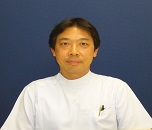Scientific Program

Shinichi Arakawa
Tokyo Medical and Dental University, Japan
Title: The clinical utilization of Ozone Ultrafine Bubble Water to get symbiosis
Biography:
Abstract
Periodontitis and peri-implantitis are chronic inflammatory diseases caused by microorganisms residing in subgingival biofilm. Elimination of pathogen-containing biofilms remains the primary goal of the treatment for these diseases. The topical use of a low-cost, broad-spectrum antiseptic agent with low potential for adverse reactions is preferable in treating periodontitis or peri-implantitis. Ozone (O3) is attracting attention as a possible alternative antiseptic in the dental field as well as food industries. The high stability of Ozone Ultrafine Bubble Water (OUFBW) allows for bottling and use as a disinfectant solution. In my presentation, the bactericidal activity biocompatibility against human oral cells of OUFBW will be introduced. The OUFBW possesses potent bactericidal activity against several kinds of bacteria such as periodontopathic and cariogenic bacteria and is not cytotoxic to cells of human oral tissues. The use of NBW3 as an adjunct to the therapy for periodontitis and peri-implantitis would be promising.
Polymicrobial interactions with the host in both health and disease will be discussed. So far we have attempted to identify specific bacterial clonal types of periodontal diseases, however, we have to learn more concerning their contribution to both oral health and disease. Recent studies suggested that host-associated polymicrobial communities are an integral part of us. Understanding the microbial community factors that support the associations with host tissue that contribute to periodontal health may also reveal how disbiotic oral communities disrupt periodontal tissue functions. On the other hand, periodontitis has been implicated as a risk factor for various systemic diseases. Dysbiosis in oral cavity might cause systemic changes other than the destruction of periodontal tissue. We have to develop strategies to prevent the dysbiotic state for obtaining periodontal and systemic health.
- Oral medicine
- Diagnosis and Prevention of Oral Disease
- Oral and Maxillofacial Surgery
- Orthodontics and Dental Implants
- Prosthodontics
- Oral and Dental Health
- Periodontics and Oral Hygiene
- Restorative Dentistry and Endodontic
- Cosmetic Dentistry
- Oral Oncology
- Dental Public Health and community dentistry
- Radiology
- Focal infection
- Diabetes and Periodontal disease
- Bi-Digital O-Ring Test (BDORT)
- Dementia and Denture
- Skin care, metal allergies around oral area
- Sports dentistry
- Occlusal treatment
- Electromagnetic waves and dentistry

